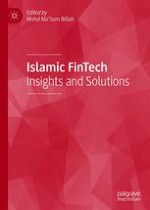2021 | OriginalPaper | Buchkapitel
14. I-FinTech and Its Value Proposition for Islamic Asset and Wealth Management
verfasst von : Hazik Mohamed
Erschienen in: Islamic FinTech
Verlag: Springer International Publishing
Aktivieren Sie unsere intelligente Suche, um passende Fachinhalte oder Patente zu finden.
Wählen Sie Textabschnitte aus um mit Künstlicher Intelligenz passenden Patente zu finden. powered by
Markieren Sie Textabschnitte, um KI-gestützt weitere passende Inhalte zu finden. powered by
